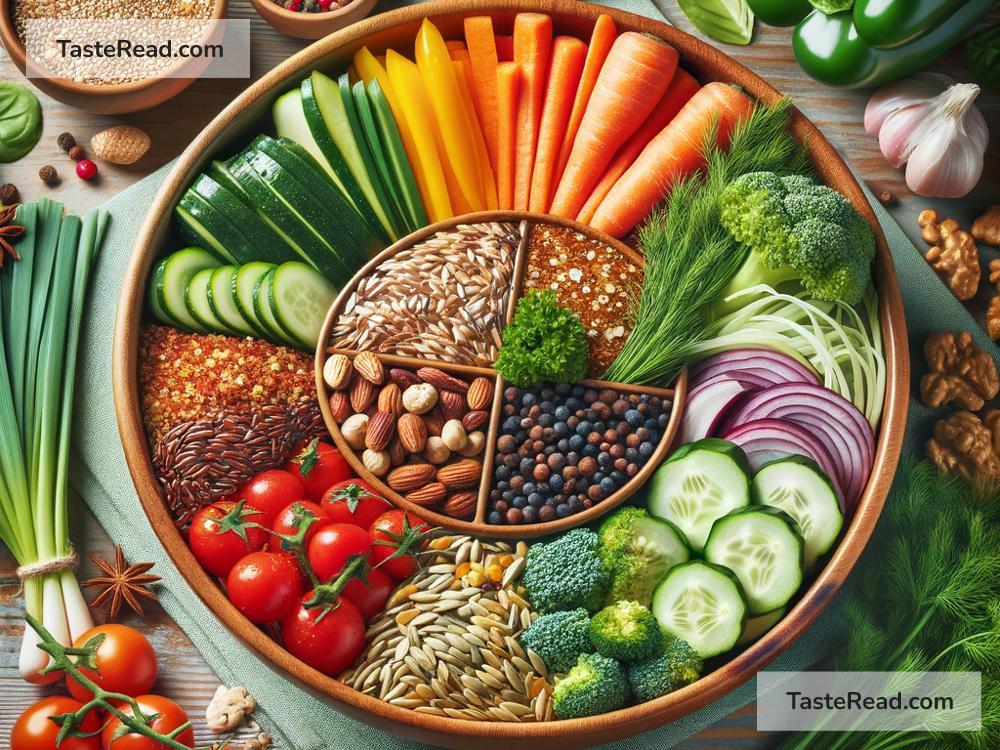Understanding the Importance of Nutrient Balance
If you’ve ever tried to eat healthier, you’ve probably heard terms like “balanced diet” or “nutrients.” These are essential concepts for keeping your body strong and healthy. But what does nutrient balance really mean, and why is it so important? In this blog, we’ll break down the big picture and explain why getting the right mix of nutrients matters for your overall well-being.
What Are Nutrients?
Before we talk about balance, let’s start with what nutrients are. Nutrients are substances found in food that our bodies need to grow, stay healthy, and function properly. Think of them as fuel for the car that is your body! There are six main types of nutrients:
-
Carbohydrates: These give your body energy. Foods like rice, bread, potatoes, and fruits are rich in carbs.
-
Proteins: Proteins are the building blocks of muscles, skin, and tissues. You can find them in meat, eggs, nuts, and beans.
-
Fats: Don’t be afraid of fats—they’re essential for energy and helping your body absorb vitamins. Healthy fats come from foods like avocados, nuts, and fish.
-
Vitamins: These are nutrients your body needs in smaller amounts to help with processes like vision, immunity, and healing. You can get vitamins from fruits, vegetables, and fortified foods.
-
Minerals: Minerals like calcium, potassium, and iron work to strengthen bones, keep nerves working, and transport oxygen. Think of dairy, leafy greens, and meats as sources.
-
Water: Believe it or not, water is also considered a nutrient! It helps your body stay hydrated and supports almost every function.
What Does Nutrient Balance Mean?
Now that we understand nutrients, let’s talk about balance. Nutrient balance means getting the right mix of these six nutrients in your diet based on your body’s unique needs. This doesn’t mean you should eat the same amount of each nutrient every day. Instead, it means adjusting your intake so you’re providing your body with enough energy, vitamins, and minerals to work correctly.
For example, athletes might need more carbs for energy, while older adults might need extra calcium and vitamin D to keep their bones strong. Everyone’s nutrient needs are different based on age, activity level, and health conditions.
Why Is Nutrient Balance Important?
Having the right nutrient balance impacts your physical health, your energy levels, and even your mood. Here are some reasons nutrient balance should matter to you:
1. Supports Body Functions
Your body is like a machine, and every nutrient plays a part in keeping it running smoothly. Carbs fuel your brain and muscles, protein repairs tissues, and water keeps all systems working. If you’re missing certain nutrients, parts of your body might not function as they should.
For example, if you don’t eat enough iron (a mineral), you may feel tired or weak because your body struggles to make red blood cells that carry oxygen.
2. Prevents Health Problems
Eating too much of one nutrient—or too little—can lead to health problems. For instance, too many unhealthy fats can increase cholesterol levels, putting your heart at risk. On the other hand, too little calcium can weaken your bones over time, leading to conditions like osteoporosis.
Maintaining nutrient balance helps protect you from diseases like diabetes, heart conditions, and even certain cancers.
3. Boosts Energy and Mood
Have you ever felt sluggish after eating a sugary snack? Or full of energy after a healthy meal? That’s because the foods you eat directly impact how you feel. Balanced meals provide steady energy throughout the day, instead of quick spikes and crashes.
Additionally, certain nutrients like omega-3 fatty acids (found in fish and seeds) can improve brain health and stabilize your mood.
4. Helps You Maintain a Healthy Weight
Many diets focus on cutting out certain food groups, like carbs or fats, but that’s not always healthy. Instead, focusing on balanced meals can help your body find its natural weight. When your body gets everything it needs, you’re less likely to overeat or crave unhealthy snacks.
How Can You Achieve Nutrient Balance?
Achieving nutrient balance doesn’t have to be complicated. Here are some simple tips:
-
Eat a Variety of Foods: Try to include a mix of fruits, vegetables, whole grains, proteins, and healthy fats in your meals. The more colors on your plate, the better!
-
Follow Portion Control: Eating large amounts of any one nutrient—like carbs—can throw off balance. Use a plate model: half for veggies, a quarter for protein, and a quarter for carbs.
-
Stay Hydrated: Drink plenty of water throughout the day. Avoid sugar-loaded drinks like soda and focus on plain water, tea, or infused water.
-
Listen to Your Body: Are you tired, hungry, or cranky? These could be signs you’re missing certain nutrients. Pay attention to how different foods make you feel.
-
Plan Your Meals: Preparing meals ahead helps you include a variety of nutrients and avoid fast food temptations.
Conclusion
Nutrient balance isn’t about strict rules or avoiding your favorite foods—it’s about giving your body what it needs to be its best self. When you eat a balanced mix of carbs, proteins, fats, vitamins, minerals, and water, you’re fueling your body for energy, better health, and happiness.
If you’re unsure where to start, consult a nutritionist or use an online meal planner to help you build balanced meals. Remember, small changes add up. Start by replacing snacks with fruits or adding leafy greens to your dinner plate. Your body will thank you, and you’ll feel the difference over time!
Balance is key—because a healthy body is a happy body.


